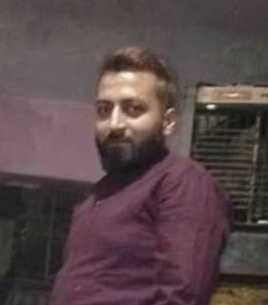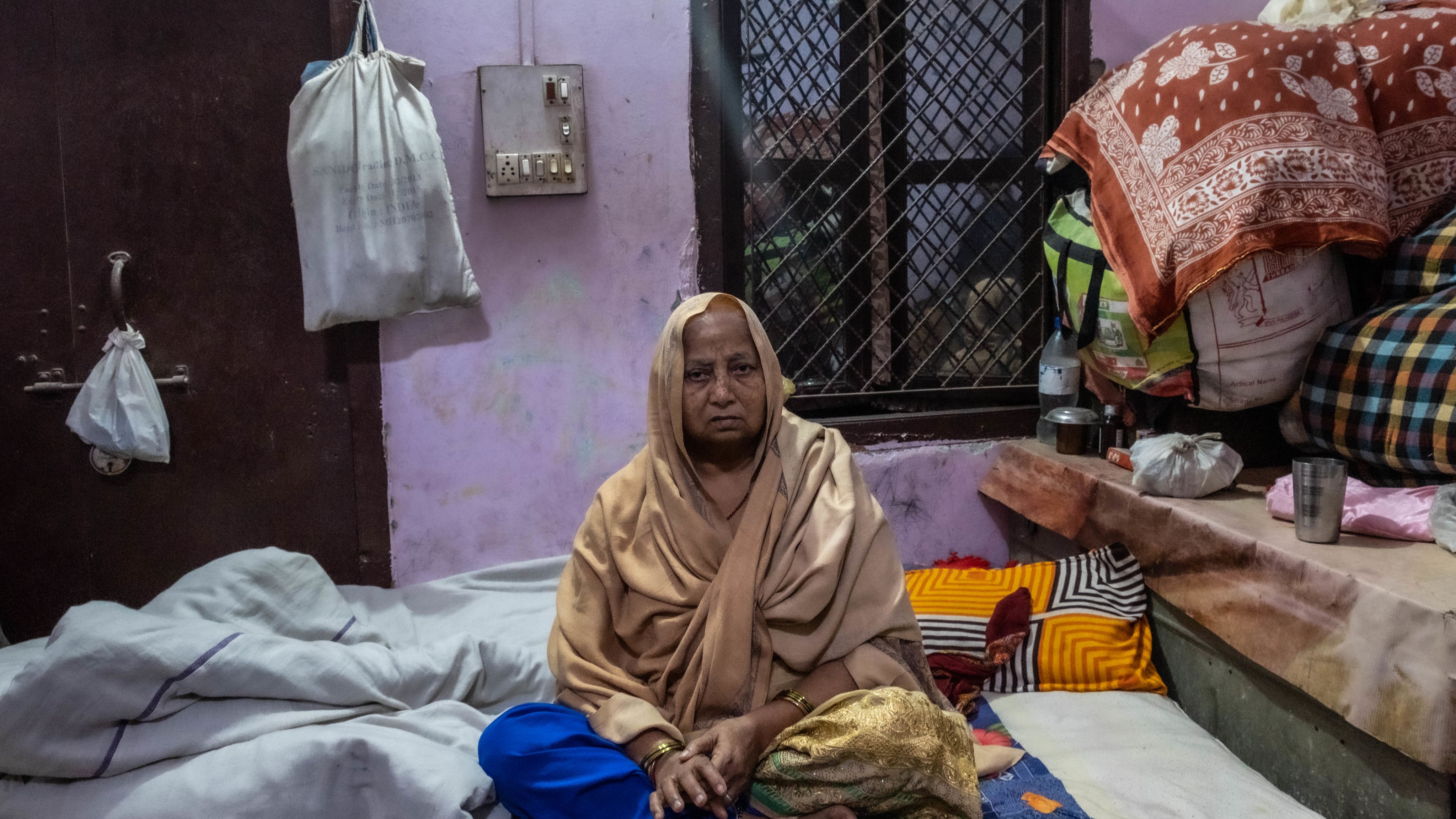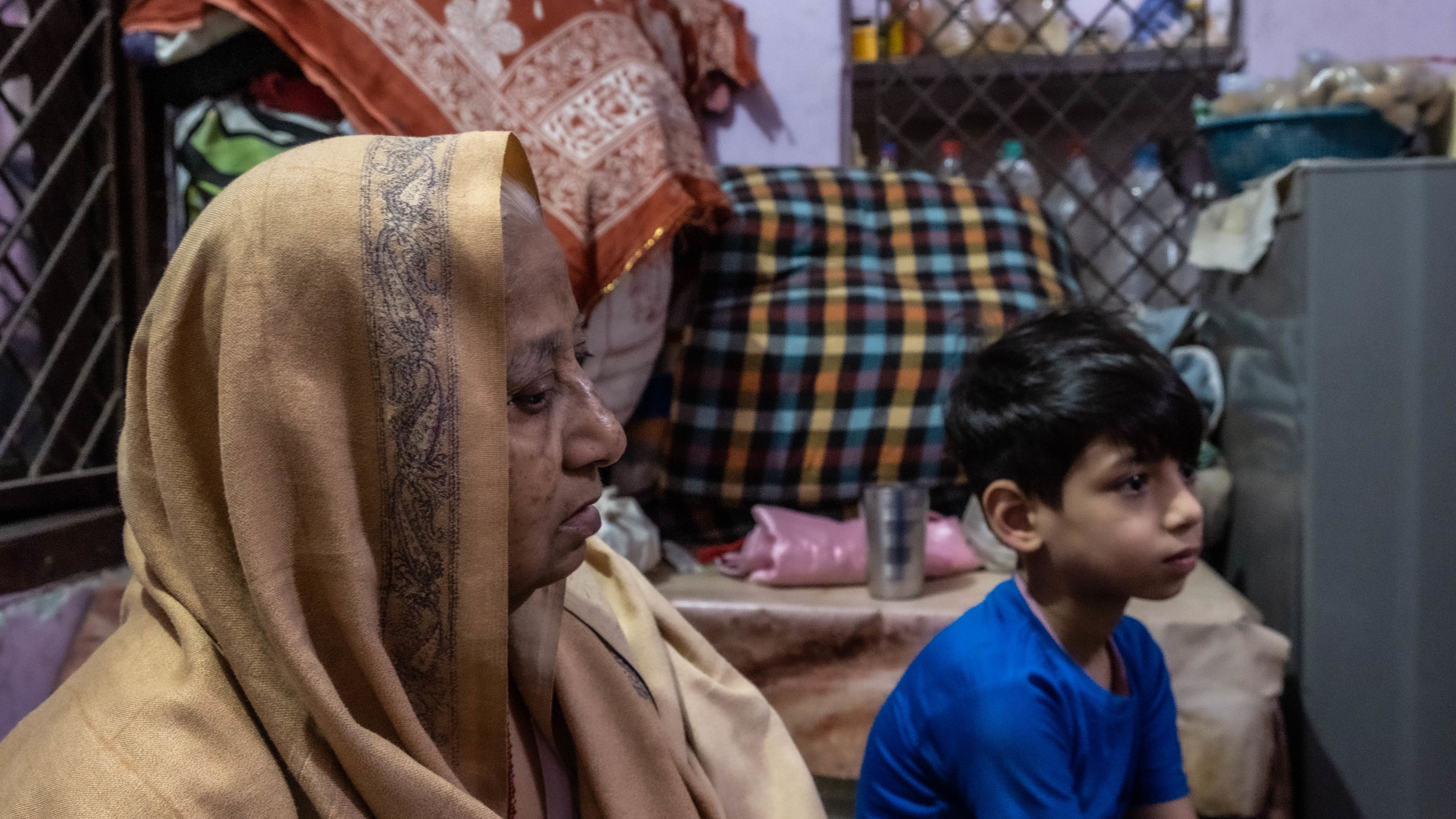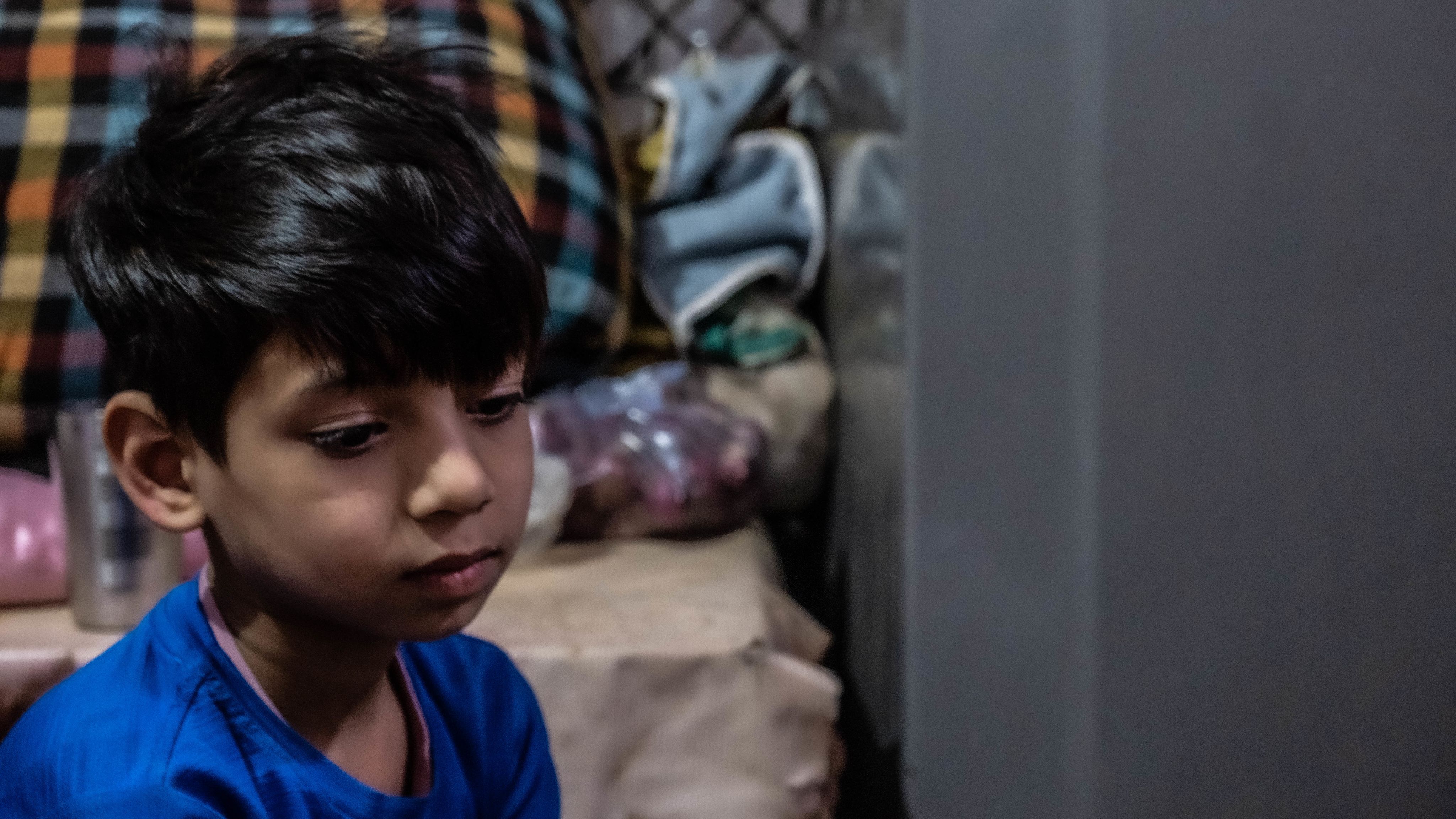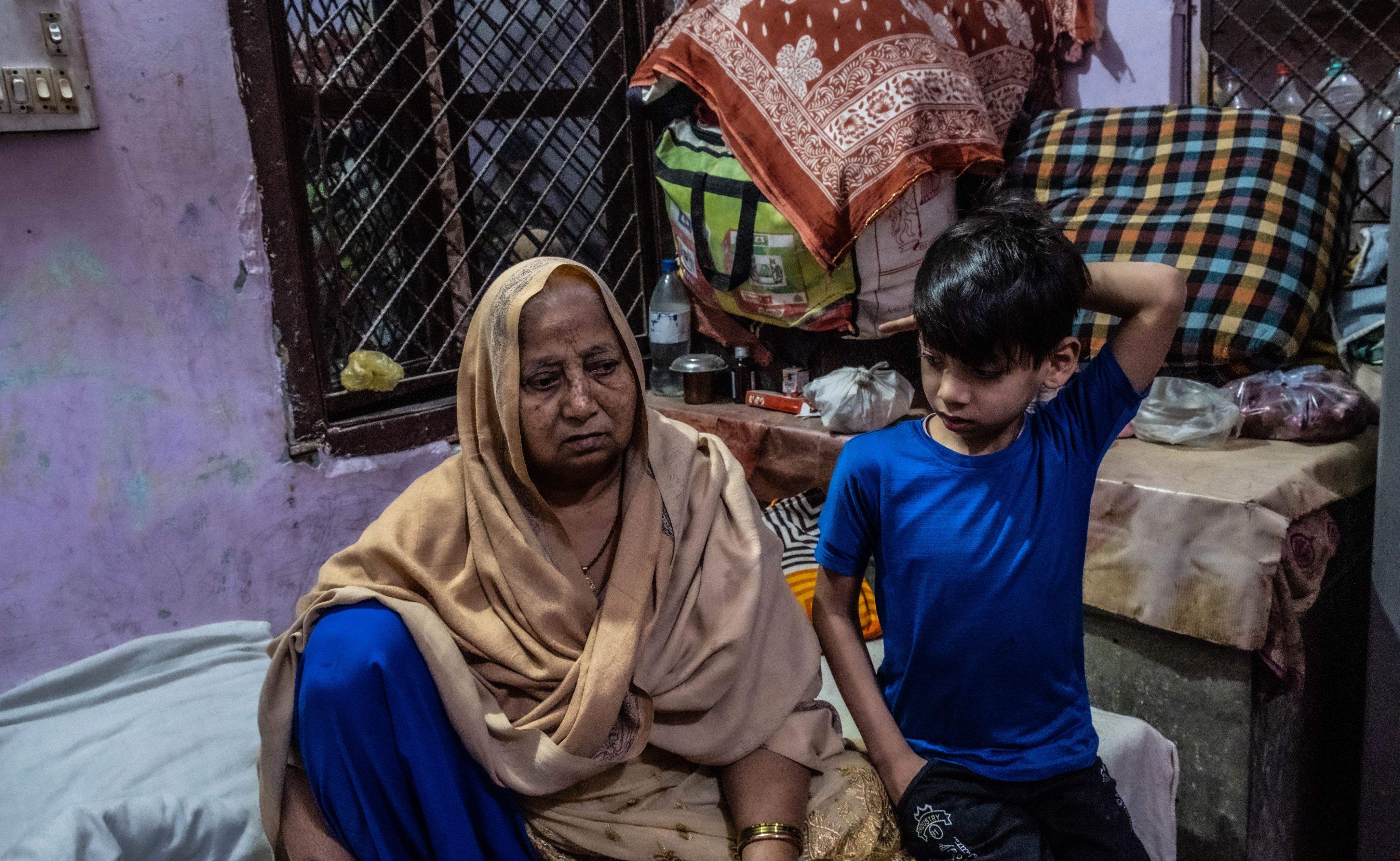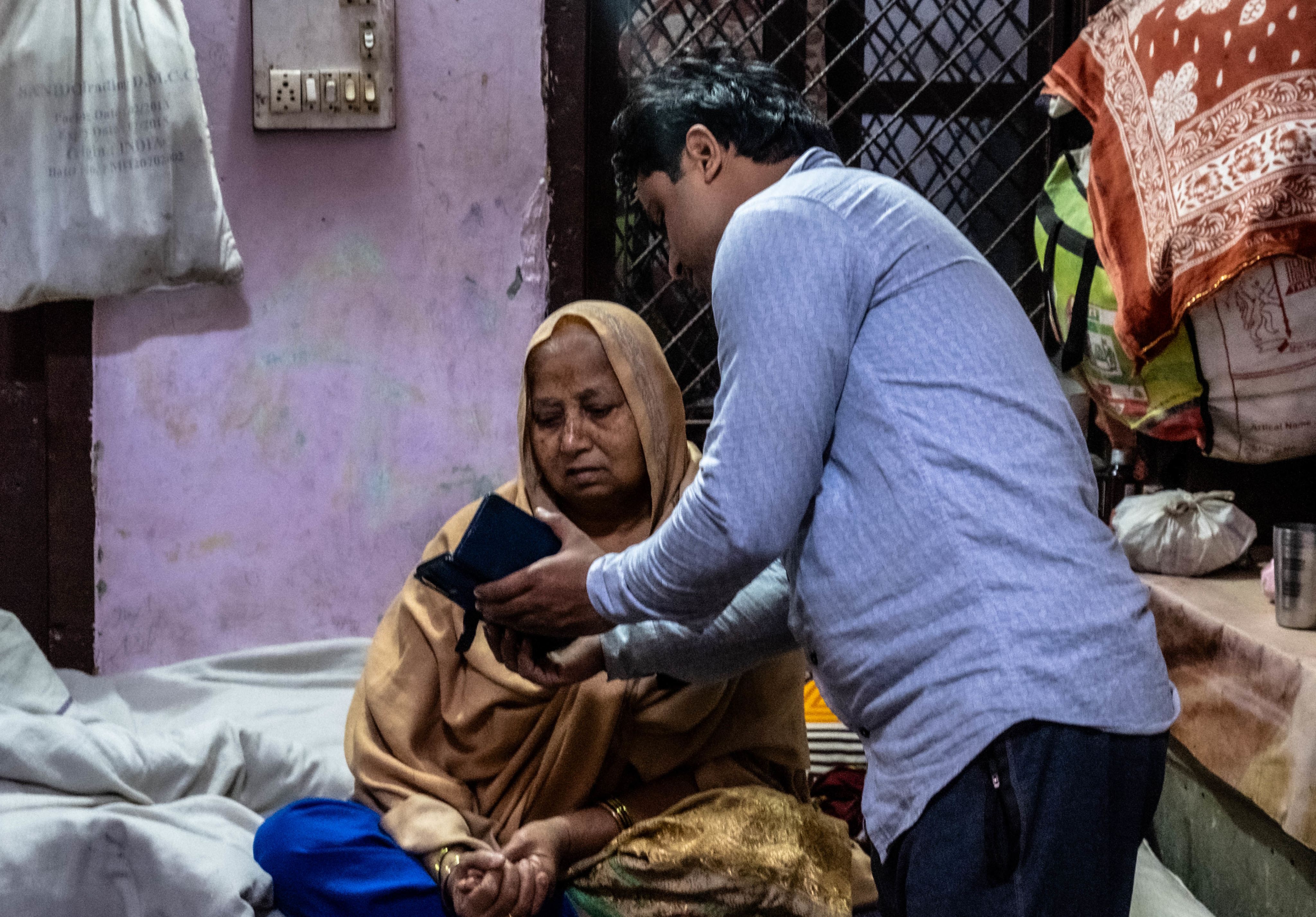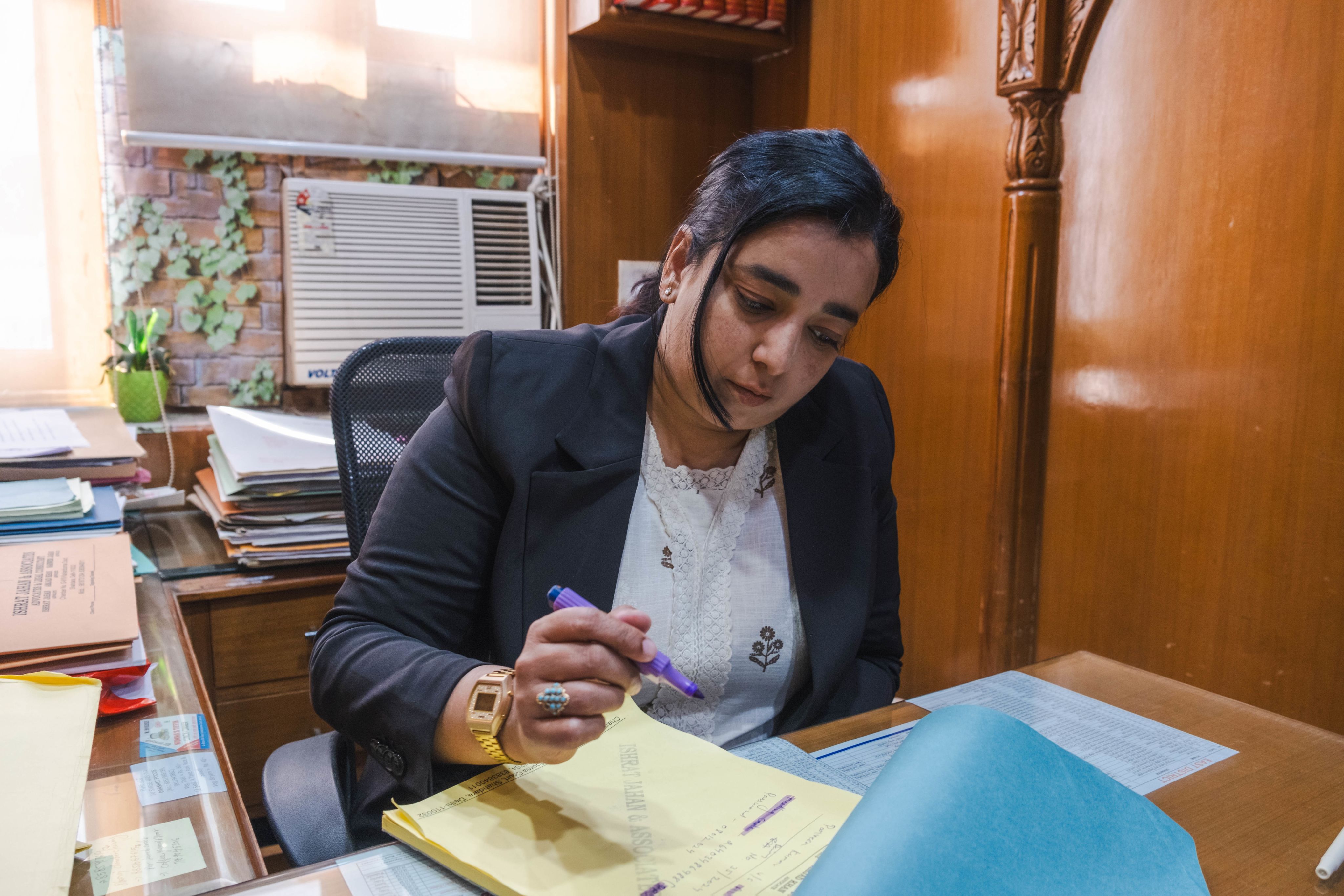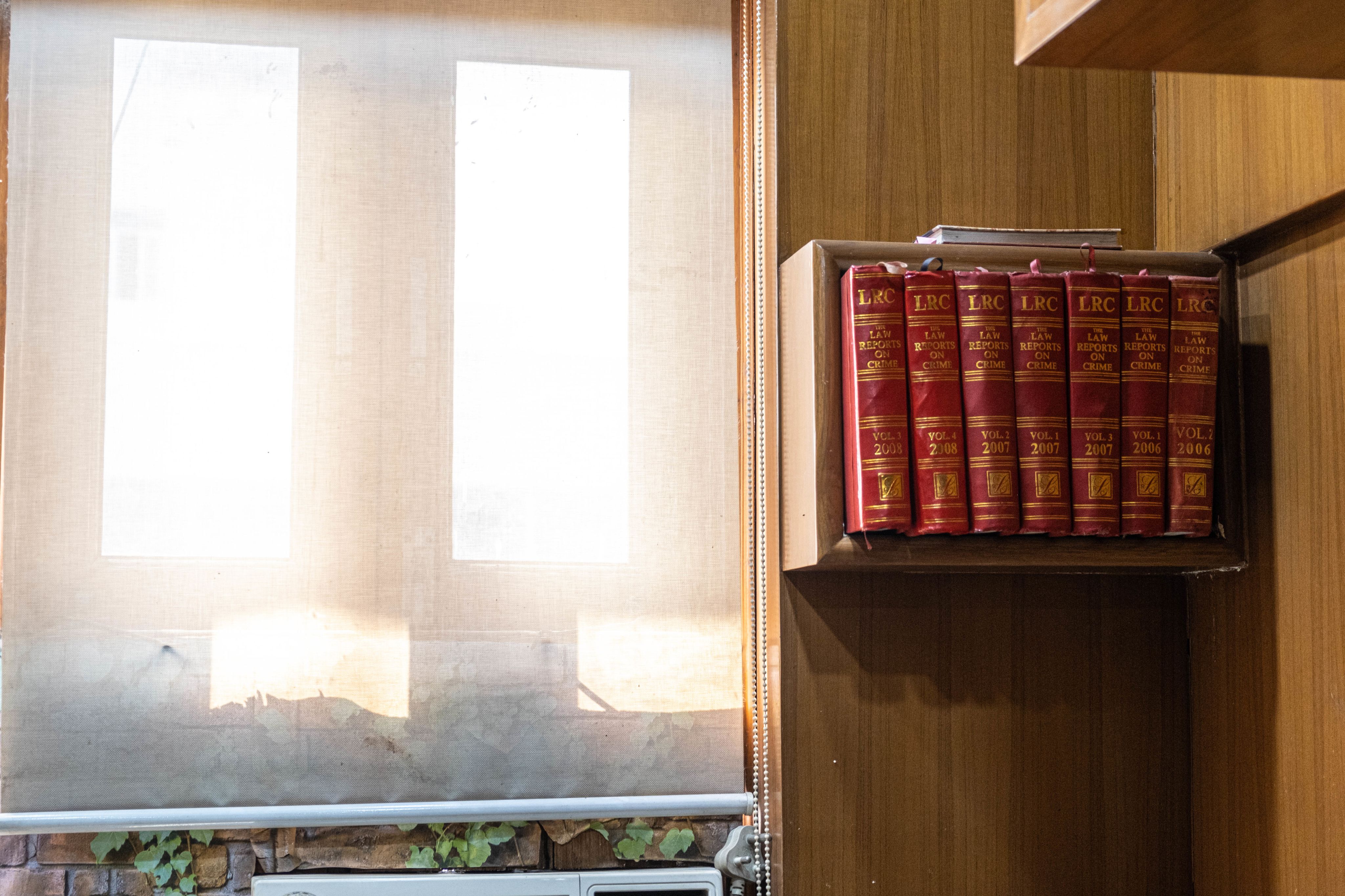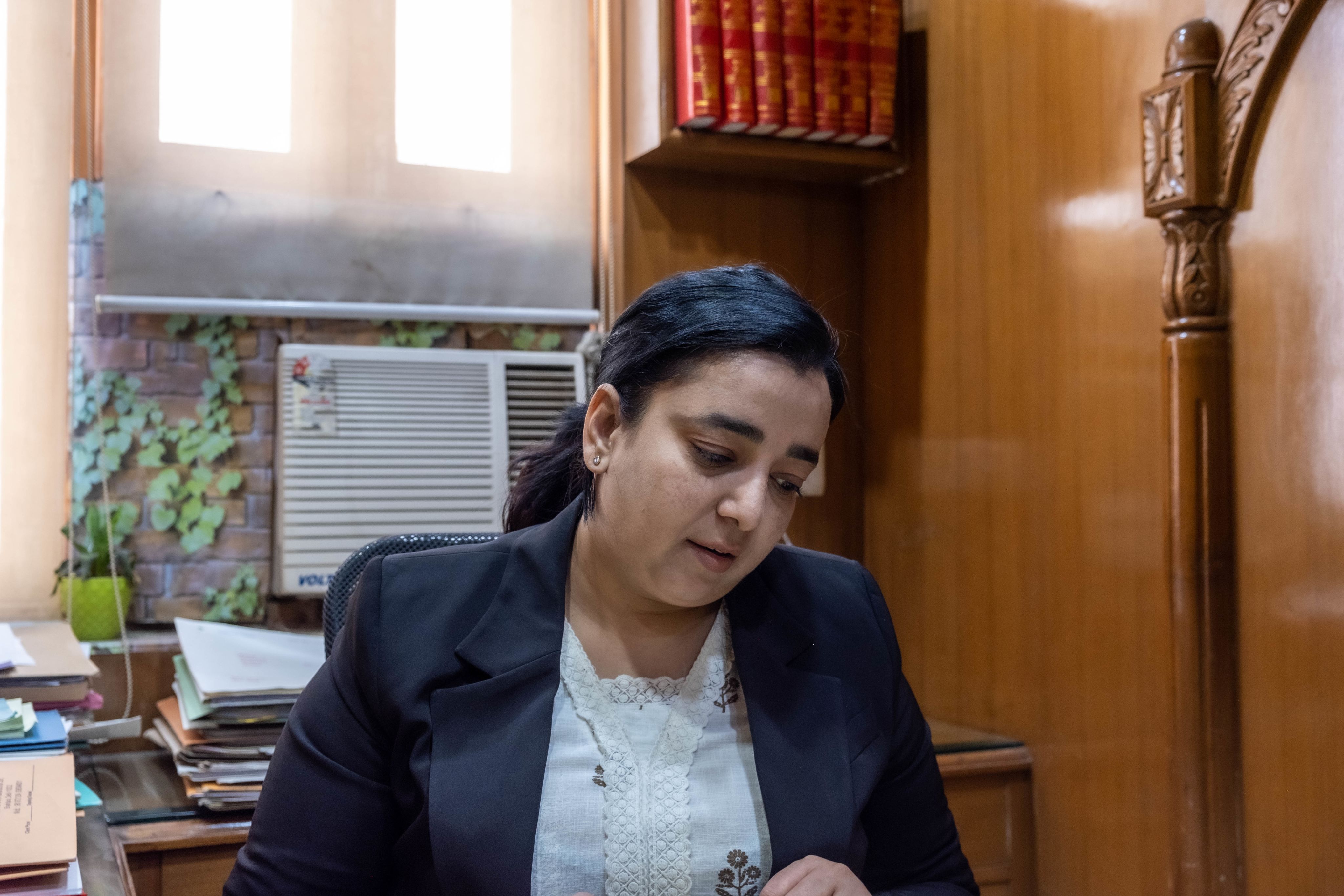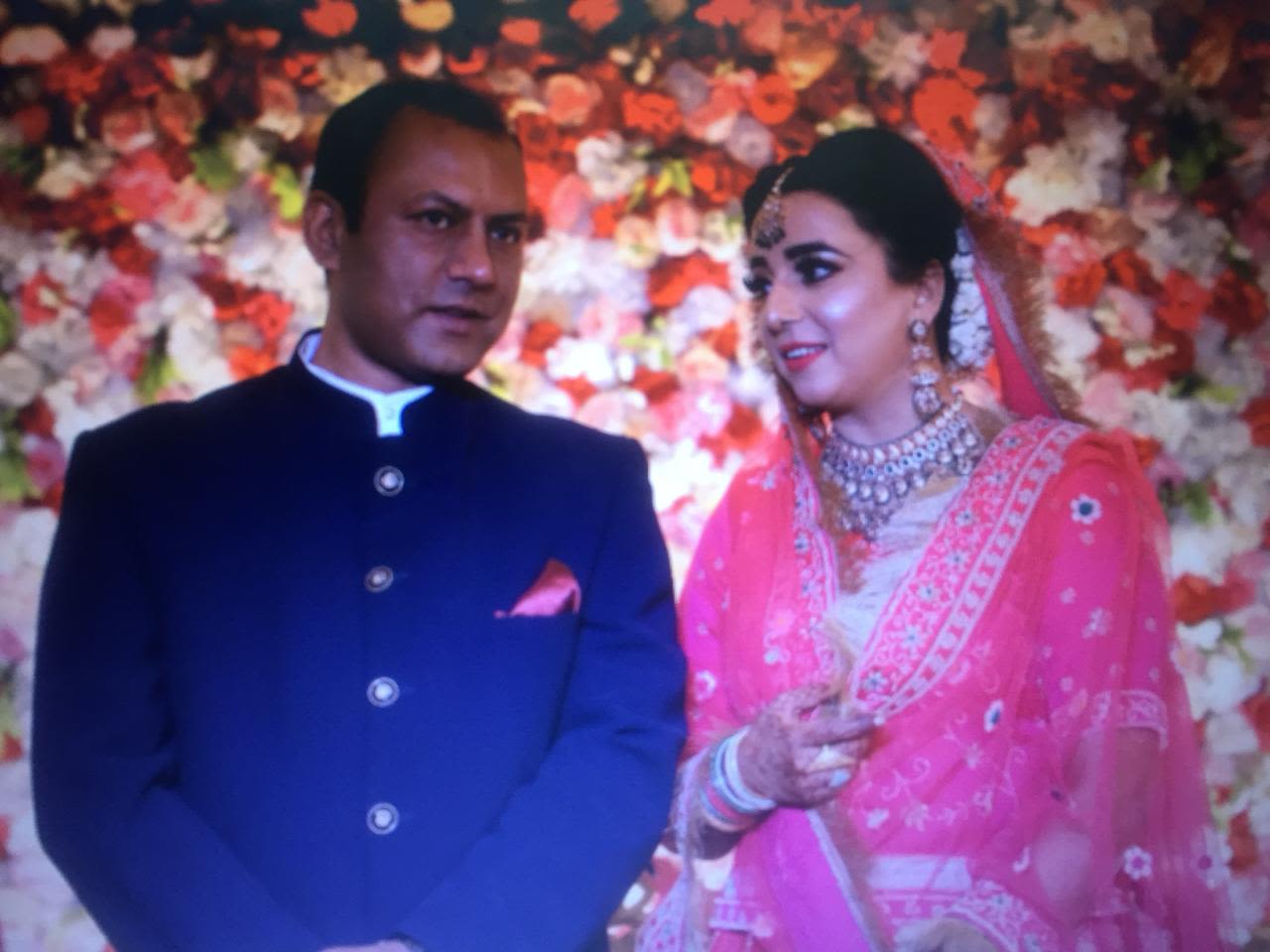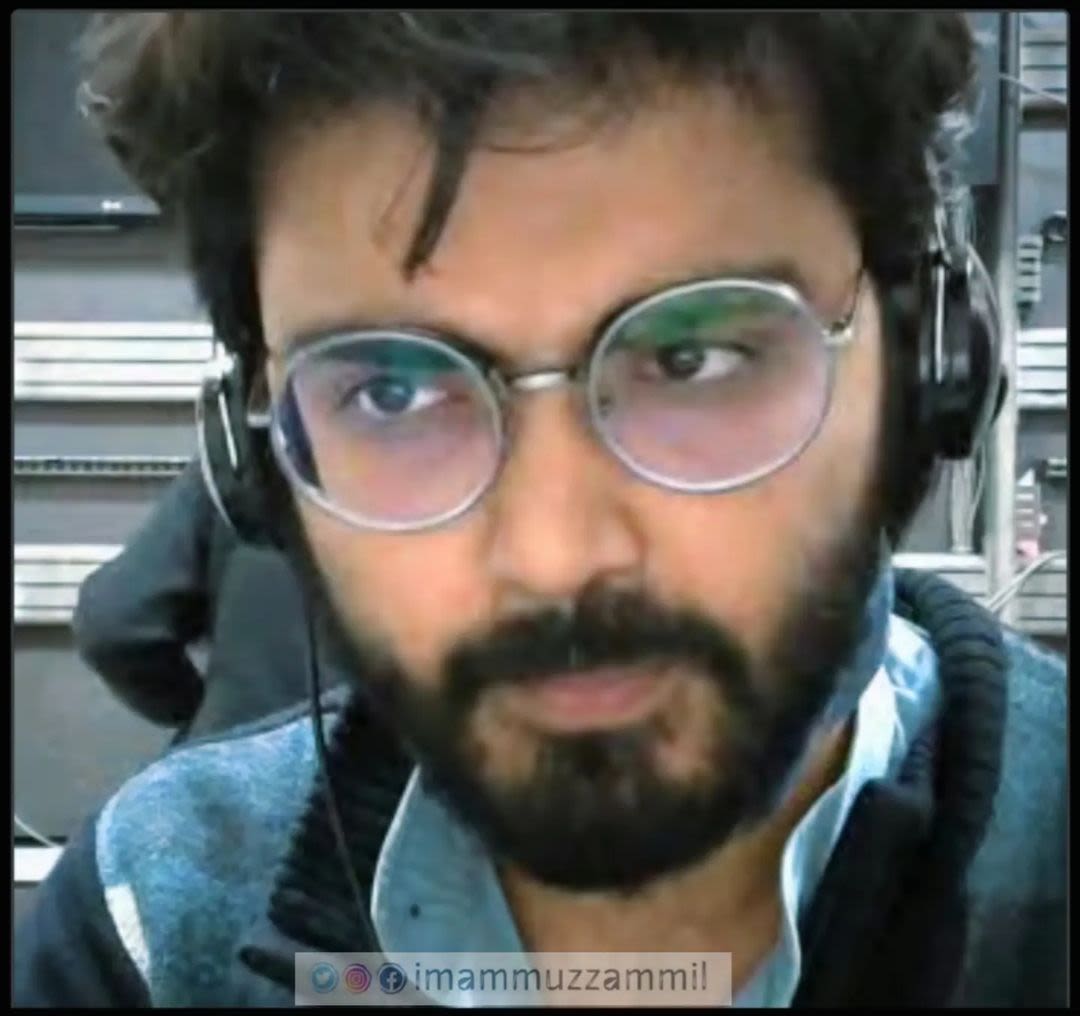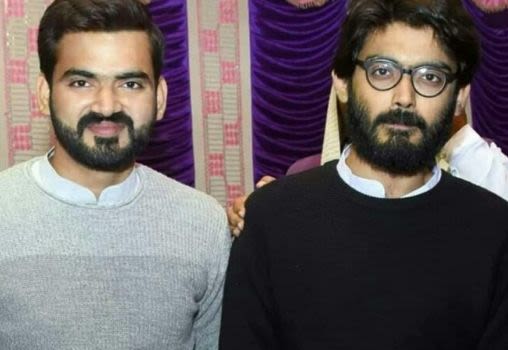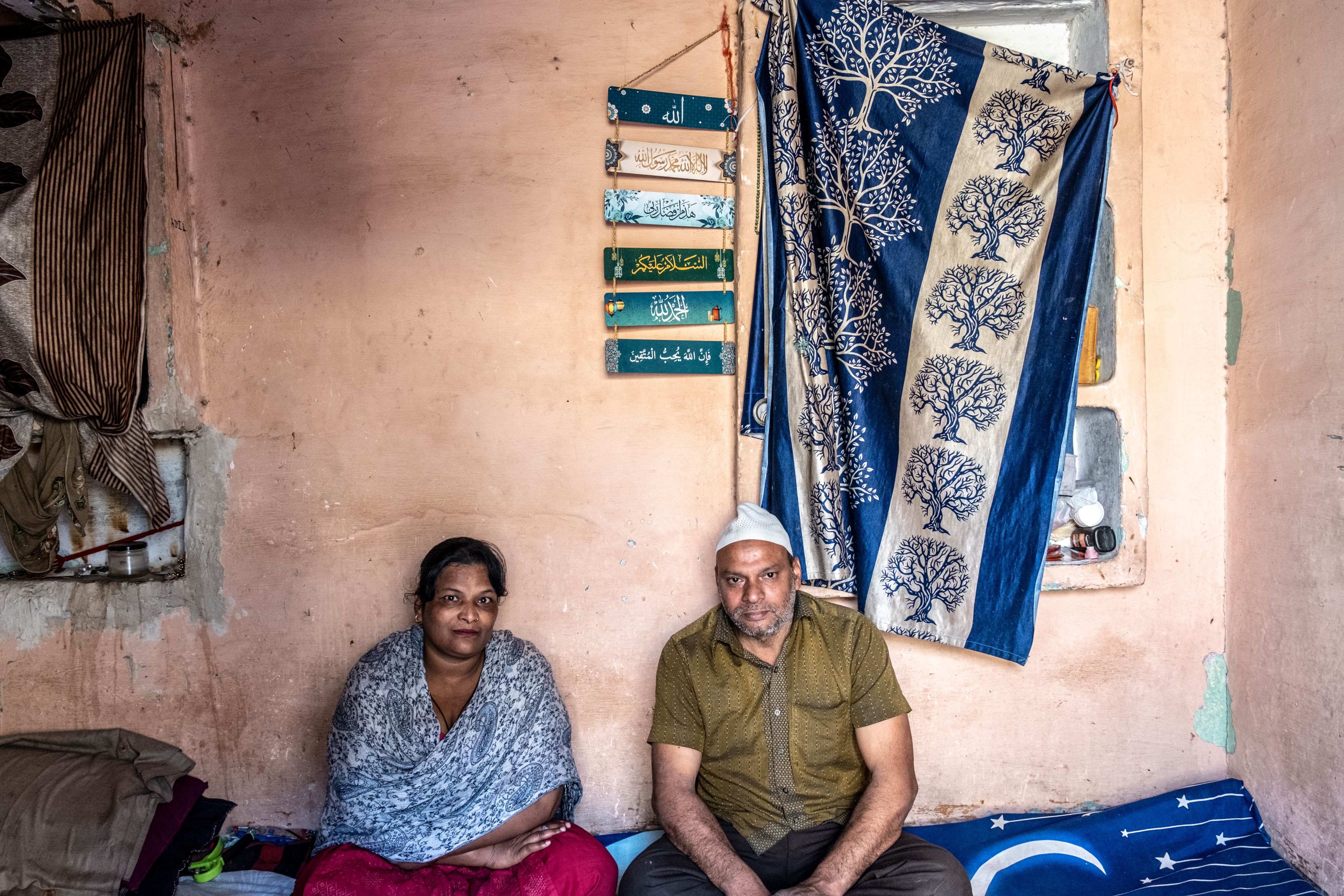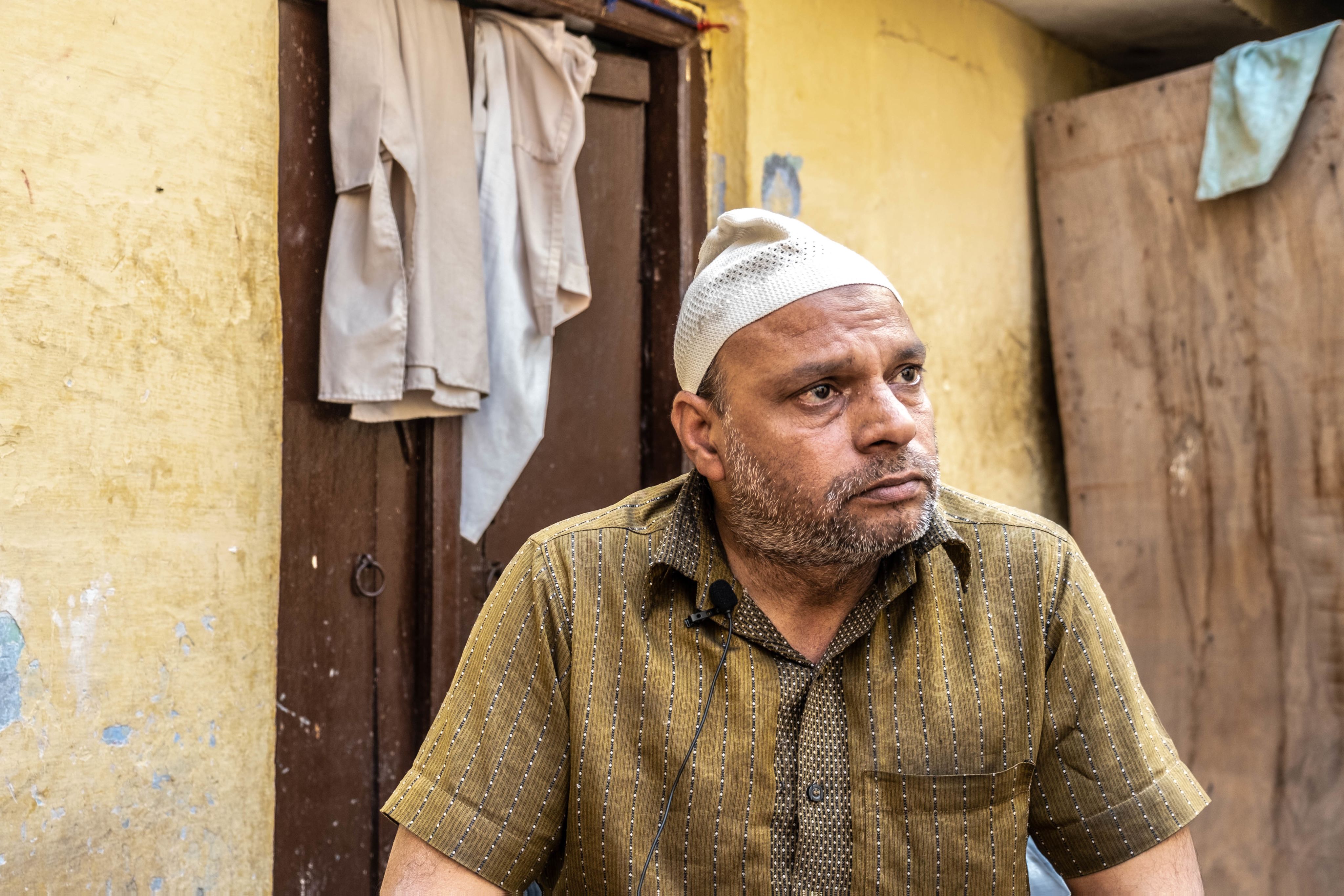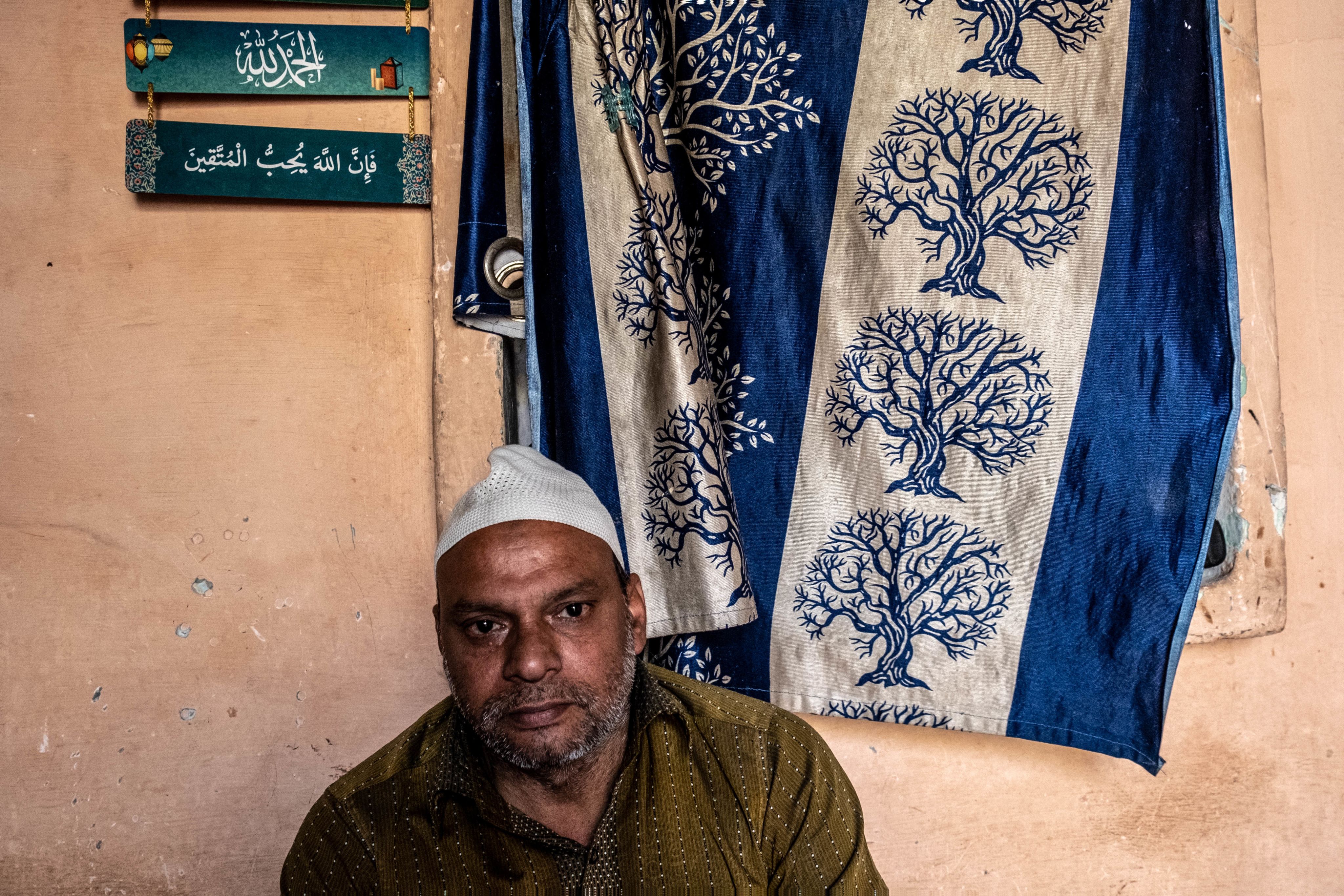Beyond the Delhi Riots: Muslims in Modi’s India
After two terms of the Modi government, India has seen a rise in communal tensions. As discrimination becomes normalized by the ruling government, Muslims talk about their mounting anxiety for the future and unhealed scars from the past.
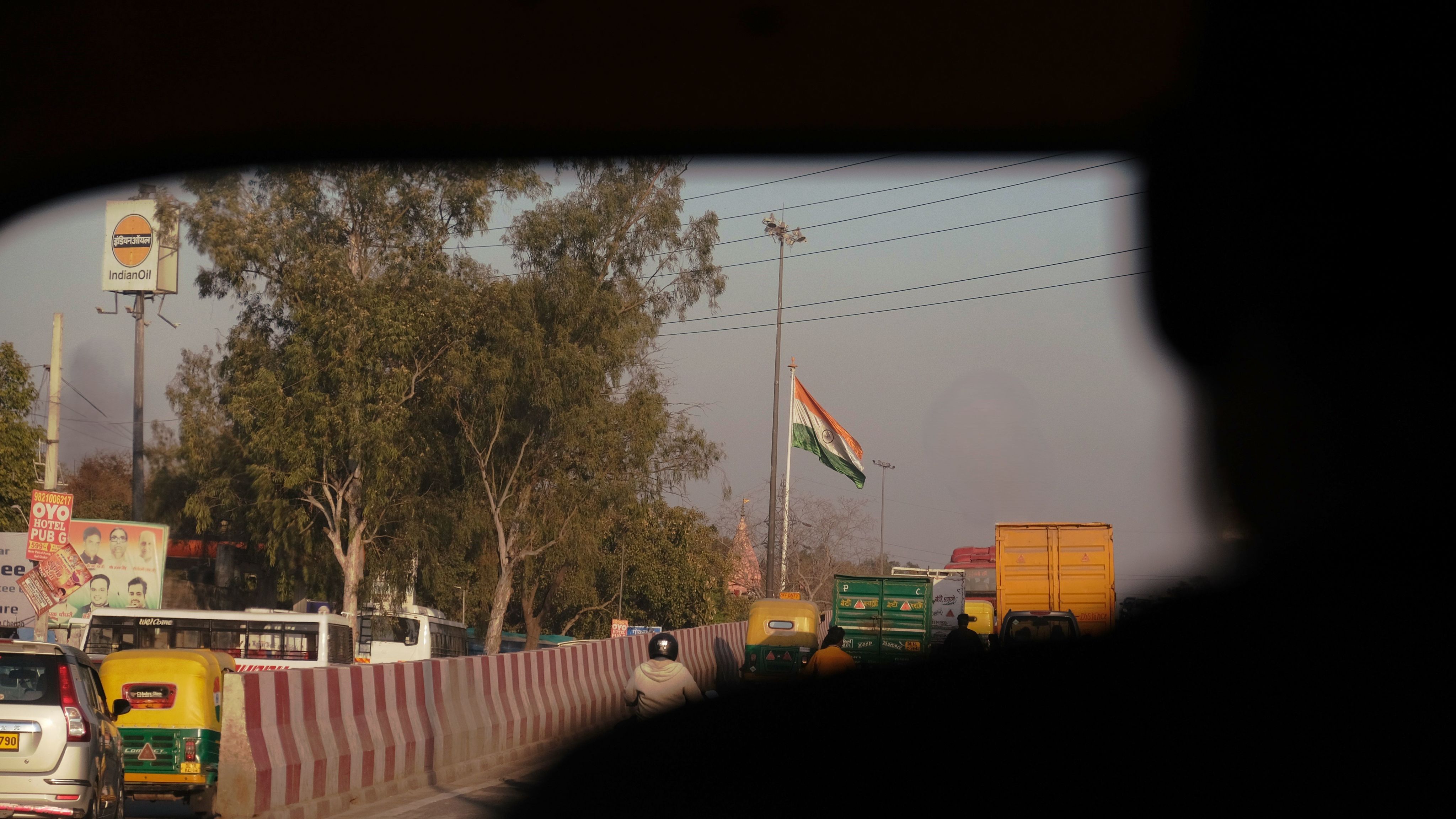

Every morning in Delhi starts with the same chaos—navigating narrow lanes, swerving past bikes, buses, and unending traffic. The city's chaos has become a part of people's lives.
Sarfaraz, an auto-rickshaw driver, has adapted to a life that revolves around the daily chaos of the city, seamlessly fitting into its rhythm. From the bustling streets near Jama Masjid, one of India's largest mosques, to the beautiful paths of Lodhi Gardens and the iconic tomb of the second Mughal emperor, Humayun, he knows every corner of the city like the back of his hand.
For him, driving to corners of the city and meeting different people has become a constant and familiar part of his daily life and work.
"One day, while I was working and waiting for passengers, two men signaled for an auto ride as usual. When I approached them, they looked at me and said, 'We won’t ride with someone who wears a cap and has a long beard."
"They refused to go with me simply because I am a Muslim."
He has felt a change in the streets. There's a shift in the atmosphere and people's attitudes.
For those unfamiliar with India's daily realities, it may seem like an anomaly. For many, it is simply a new ugly reality of present-day India. India is home to some two hundred million Muslims, one of the world’s largest Muslim populations however comes under a minority religion with Hindus being a majority.
Ever since Narendra Modi's Hindu nationalist Bharatiya Janata Party (BJP) swept to power in 2014, India's Muslims have faced a tumultuous journey.
"People shout at me, 'Go to Pakistan!' But how can I leave my own home? This is where I was born, where my family lives, and where I will be buried", said Sarfaraz.
Muslims, who have called India home for generations, are now being brutally killed and lynched in the very places they've lived all their lives. Modi’s decade in power has seen a surge in hate speech against religious minorities, attacks on their areas of learning and worship, and mob lynchings.
As the world's largest general elections have been taking place in India, all the predictions point to Narendra Modi winning with an overwhelming majority. Modi is eyeing the office a third time. In the lead-up to the national elections, the Modi government revived the Citizenship Amendment Act (CAA), a law passed by parliament in December 2019 but shelved after it triggered widespread protests and eventually the Delhi communal riots in 2020.
The 2020 Delhi riots are now just a date in history. In the din of city traffic and clamor, the echoes of those shouts, screams, and cries have vanished. People are still recovering from the damage caused by the riots if you look closely into it. Their memories of the riots were as fresh as if it had happened yesterday. Some lost their houses and jobs, others went to jail, some were torn apart from their loved ones and others are still dealing with the trauma of the riots...
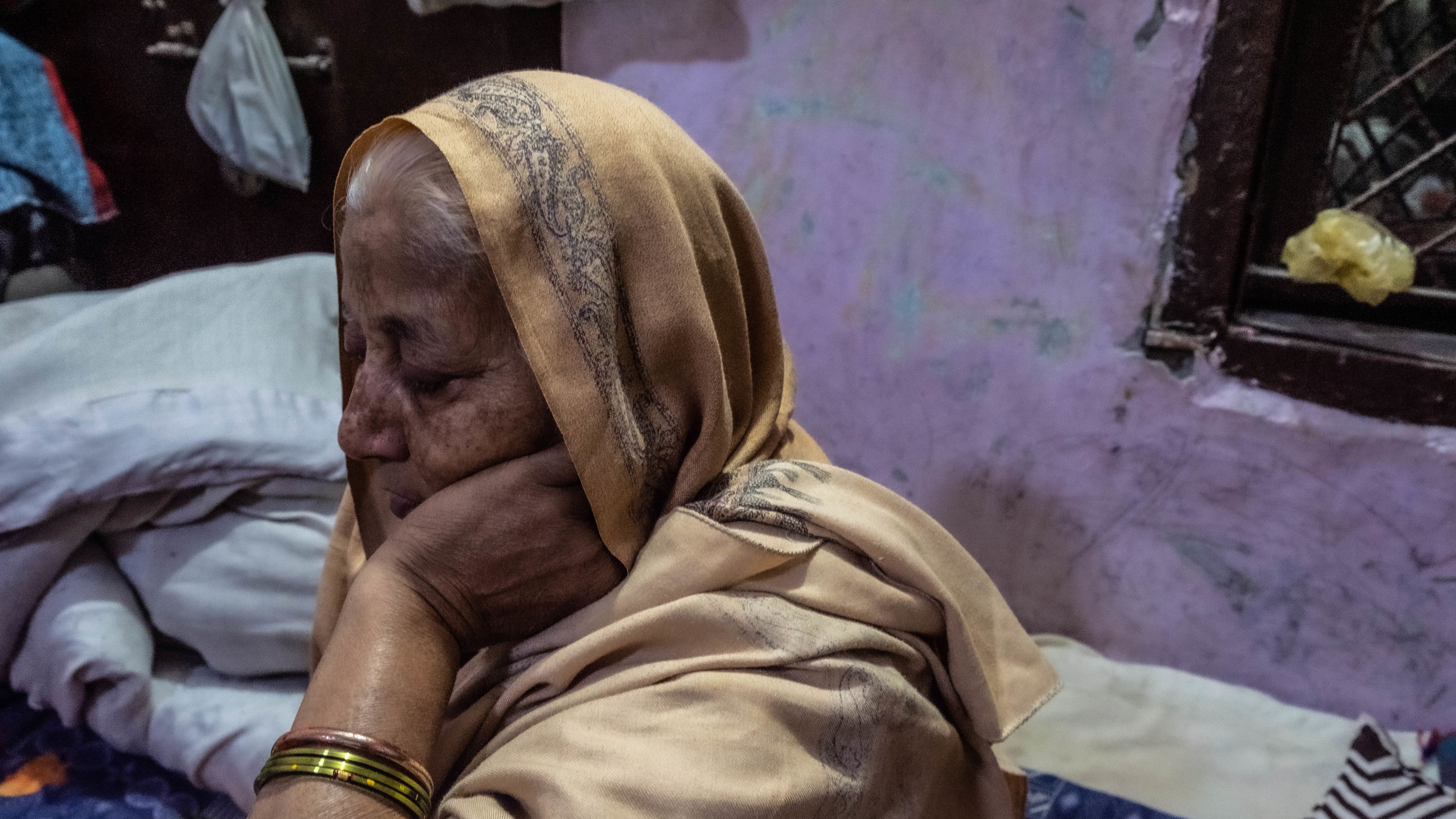
The Long Road Ahead
Kuresha Begum
"I saw them carrying sticks in their hands, stomping towards him, and started beating him until he fainted on the ground covered in blood and the lathis (sticks) blows kept on coming as they tore out his brain. I never imagined such a horrible thing could happen."
Kuresha speaks with long pauses. A deep fatigue and repetition of sentences. There's a blatant sadness in her eyes. She mostly sits in a corner of her tiny house in northeast Delhi as the spectre of her younger son —is something she cannot forget.
It was a chilly February morning in 2020, Kuresha and her son, Mohammad Irfan, went out to buy milk while Delhi was burning down to grounds by violent mobs. "Unaware” of the dangerous situation outside, they left the home together.“I was behind my son as I walked slowly, he was saying to me “Mummy, hurry up." As he reached the roundabout closest to our house, he noticed groups of shouting men clustered on the streets. The four men beat him without stopping, Kuresha remembers the horrific day that killed her son in front of her eyes as tears rolled down her face.
"My son used to read the Namaz five times a day, and he had a great build, a lengthy beard, and brown eyes. Prioritising his family, he was a simplistic young man, I don't know why this happened to him."
Mohammad Irfan. Credit: Irfan's family.
Mohammad Irfan. Credit: Irfan's family.
The brutal religious riots that engulfed Delhi, where Hindus were pitted against Muslims, hundreds were injured and 53 people killed, with the majority of them being Muslim.
Kuresha recalls that although her neighbours were present, nothing was done. Everyone was talking about how some drunk was being beaten up. "I yelled, "Help us, help us," but no one came forward."
Kuresha puts her hands on her knees. Her only shiny items are the green bangles on each crinkled wrist. She told me that she has been receiving kidney treatment in the hospital for over five years. She spends her days laying on the bed in her musty home, exhausted all the time and unable to do anything. She is an old woman in her late 60s, sitting on a bed looking tired and pale. A duvet and pillow were on the bed as she was just sleeping before, and big boxes and bags were arranged nearby taking a lot of space in the room.
Kuresha Begum
Kuresha Begum
The house had three tiny rooms where the majority of light came in through the windows. The sound of children playing and television was coming from the second room. "These are my grandchildren," Kuresha said.
A small child enters the room in the middle of our conversation. He has slightly messy hair that falls over his forehead and is donning a dark blue T-shirt. His eyes are filled with innocence.
It’s her 9-year-old grandson. Mohammad Shanu. He stares at us. He came and sat down next to his grandmother.
Irfan was married and the father of two sons. The younger one is four years old. His life was rich with the love of family and friends. His wife is now married to her brother-in-law and they are currently living close to Kuresha's residence with their two boys, and visit her frequently.
Her voice turns teary.
"When I see my grandsons, I feel the bare happiness, I am living for them now, they are just like their father."
Kuresha and her grandson.
Kuresha and her grandson.
Mohammad Shanu
Mohammad Shanu
Kuresha breaks down in tears an hour into the talk. She sobbed uncontrollably over her illness and her son's passing. Above all, on her still being alive.
"I want to be buried there where my son is."
She also talks about the lengthy court trials she attended in an attempt to bring justice to her son. "First, my complaint was registered after much struggle. Then, I went to court for several hearings, I also recognised the attackers. I have been going to trials since then", said Kuresha. "I hope someday they're punished severely for their crime." Her life is at a standstill.
According to the Times of India (TOI) recent report:
There are a total number of cases registered is 757; transferred to Crime Branch 62; a number of cases chargesheet is 367; a number of cases pending trial 250 and pending investigation is 273. Therefore, pending cases are 273 as of April 2, 2020.
In streets where Hindus and Muslims had lived peacefully side by side, bodies lay bloodied alongside discarded and burned-out cars, bikes, shattered glass, and smouldering shopfronts. Kuresha remembers her sons and neighbours stayed in the mosque all day and night to protect it from burning down to ashes.
Kuesha looking at her son's picture.
Kuesha looking at her son's picture.
Her life has turned upside down. She also lost her husband after the death of their younger son as he couldn't handle the shock. After four years, she has yet to see the attackers behind bars.
"I'm hoping that talking about this will help me get justice", she said.
It has been four years since communal violence ravaged the North-Eastern neighborhoods of Delhi claiming 53 lives, 38 Muslims and 15 Hindus, and 700 injured..
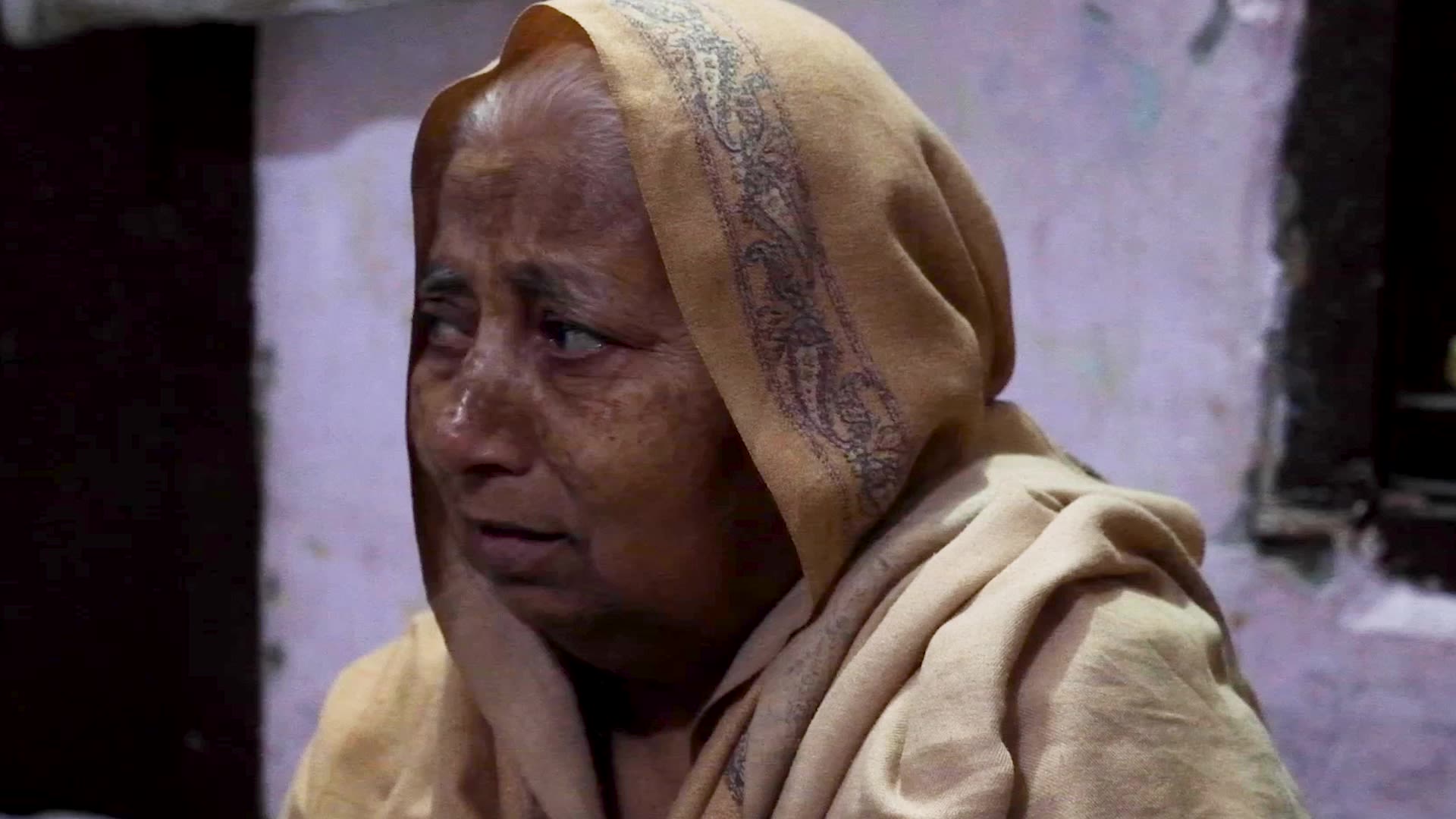
"It's the poor people like us who suffers the most."
"I've never gotten over what I saw during those days. I am 85 and I've covered things like these a lot in my career from Ranchi to Kashmir, but I've never seen anything like this", said Prem Shankar Jha, an Indian economist, Journalist and Writer.
He has extensively talked and covered about religious violence in India and believes that the Delhi riots were one of the deadliest and worst ones like 1984 and 2002. Jha explained the series of events that led to Delhi Violence 2020. On 27 January 2020, the current Union Minister of State for Finance, Anurag Thakur also instigated the crowd in his speech to chant ‘Desh ke Gaddaron ko, Goli Maaron Saalo Ko (shoot the traitors of the nation)’.
The Delhi-based socio-cultural organisation, Act Now for Harmony and Democracy (ANHAD), released a report on India’s rising hate speech and hate crime cases. It shows that anti-minority cases have been growing at an alarming rate across India, primarily against the Muslim and Christian communities.
Furthermore, a few days after the speech by Anurag Thakur, it encouraged crowds to kill people who are sitting peacefully and protesting. A student was hurt when a man fired a pistol at one of the anti-CAA demonstrators site. He then fled while yelling, "Yeh lo Aazaadi," and waving the weapon (Here, take your freedom). The incident was captured on camera, and it showed the police watching from the sidelines and doing nothing to stop the man.
It is not unexpected that two of the biggest religious riots that happened in India have been compared to the communal violence in Delhi. Following the assassination of then-Prime Minister Indira Gandhi by her Sikh bodyguards in 1984, anti-Sikh rioting in the city claimed around 3,000 lives. Additionally, in 2002, when Mr. Modi was the state's Chief Minister, a train fire in Gujarat claimed the lives of sixty Hindu pilgrims, resulting in the deaths of over 1,000 individuals, the majority of whom were Muslims. In all instances, the perpetrators—who were mostly members of the ruling party's militia—were permitted to wreak havoc while the state stood by and did nothing.
The national capital of India, Delhi, saw the same play out. This time, Modi was the prime minister, and his administration, which was directly in charge of maintaining law and order in Delhi, could not end the riots that raged in the city's northeast for almost three days.
"I remember during 2002 riots, the then Prime Minister, Vajpayee visited Gujarat after a month to a refugee camp, and he said to Modi "Main yahan lashe ginane nahi aaya hoon. Aman kayam rakhna rajneetik neta aur adhikariyon ka zimmedari hai. (I have not come here to count the corpses. It is the responsibility of the political leaders and officials to maintain peace).” Atal Bihari Vajpayee was a very different man and it was very different India under his leadership", says Jha.
Jha traveled to the impacted areas to gather more information about the circumstances and conduct some firsthand reporting. "There is a lot of congestion in the northeastern parts of Delhi; houses are connected to one another. I noticed something odd there—one house was burned down, while the other was intact, it broke my heart seeing ruins of the place."
Starting Over
Ishrat Jahan
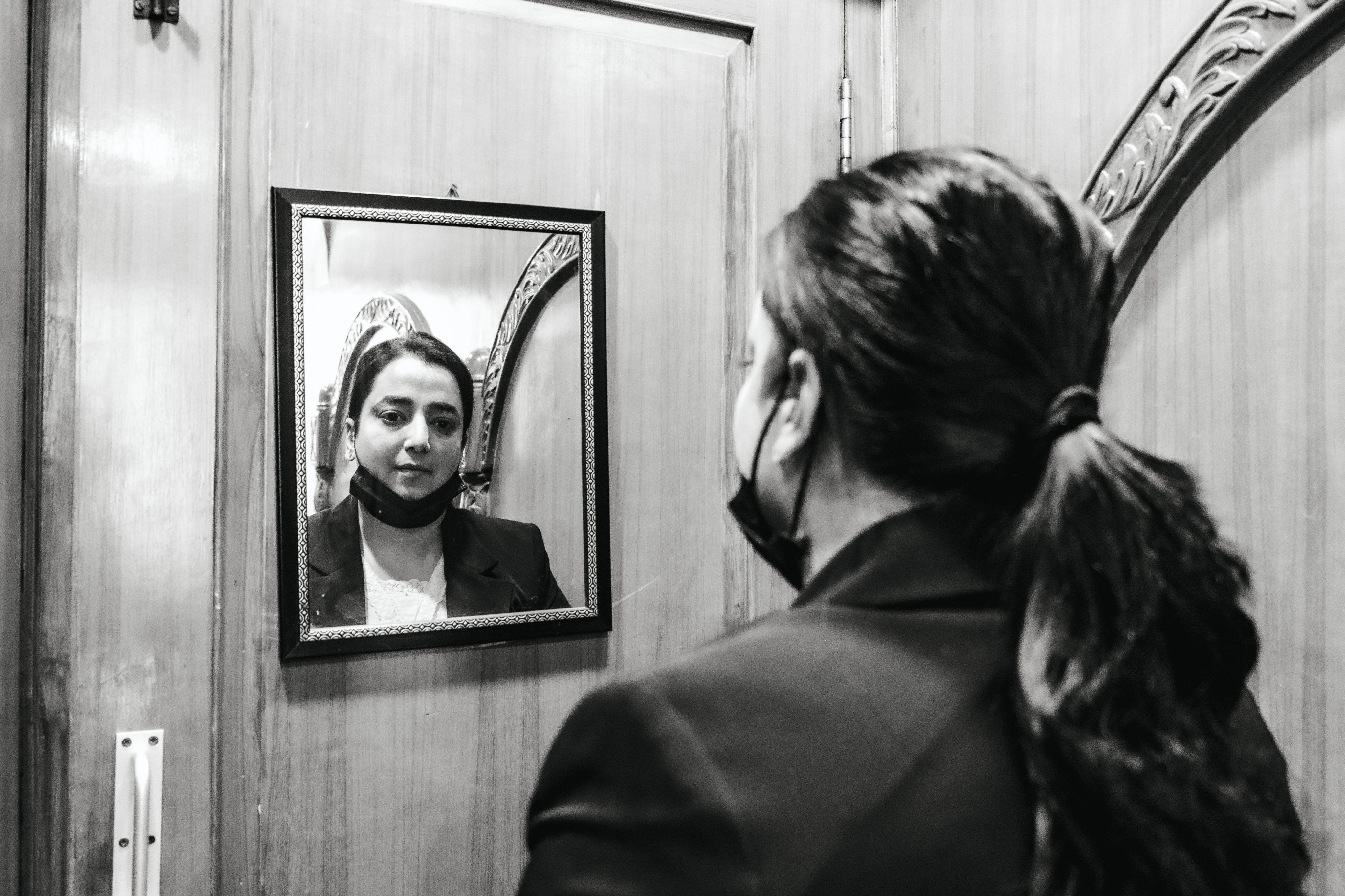
"When I used to go to my court hearings, they always maintained great security for me like I was a dangerous criminal and to make it a huge deal. Three or four police officers used to be all around me. The continuous look down stare at me was evident by the people. The colleagues who I used to work with now overlook me as a criminal was hard to make sense of", Ishrat Jahan.
Being a lawyer herself, Jahan was standing in a court as a suspect with high security where she stood as a lawyer once in 2020.
Jahan at her hearings. Credit: Ishrat Jahan
Jahan at her hearings. Credit: Ishrat Jahan
Like so many other people in Delhi, in February 2020 everything changed after the unfortunate violence for Jahan. She is a lawyer and a former Municipal Councillor representing the Indian National Congress. On 26 Feb 2020, the police alleged that Ms. Jahan had provoked the mob, to pelt stones on the police force, leaving many injured. The police also claimed that a juvenile fired at the police party at the instigation of Ms. Jahan.
"I was described as a “Mastermind” of whole communal riots 2020."
Sitting on a peaceful protest in Delhi's Khajuri Khas, she was arrested from the protest site on the accusations of conspiracy, under FIR 44 for allegedly provoking crowds at the protest site in Khajuri Khas and urging them to stay on as the violence spread. Later, she got bail on March 21, 2020, but was rearrested the same day as she was arrested under FIR 59, been booked under the Unlawful Activities Prevention Act (UAPA), a stringent anti-terror law, for being part of the larger conspiracy into the riots which famously accused 18 people of conspiring to foment communal violence in Delhi and destabilise the state.
"I was wrongly framed. For weeks, I didn't know what allegations were made against me. Why I was behind the bars?"
"The police created a bogus picture and tried to fit me in it. I have studied law and I believe in the Constitution. It had never occurred to me that a woman who believed in secularism would be charged with serious allegations."
Jahan, 34, had different plans for the future. She thought she would prepare for the Indian Judiciary exams and serve her country. Her family supported her immensely to pursue her dreams and become an independent woman. “They got me a car, I learned how to drive, motivated me to study and practice law,” she said.
Jahan at her Chamber, Karkadooma, Delhi.
Jahan at her Chamber, Karkadooma, Delhi.
However, everything was put on hold as she had new challenges to face in her life.
The shadowy four walls and the arching ceilings of the prison was the only place she had known for 25 months.
"One of the most difficult things was to wait for hearings. It was eight months after my detention that I learned of the grave accusations filed against me concerning the Delhi riots. After one year in jail, I attended my first court appearance and encountered other individuals who had been wrongfully accused. Others accused in FIR 59 included Sharjeel Imam, Umar Khalid, Salim Malik, Gulfisha Fatima, Salim Khan, Meeran Haider, etc."
We talk for a long time, and not once does Jahan cry or break down. At some of my questions, her eyes became prickly, resentful, and sad. I'm sure a lot of other people before me asked her the same questions. In front of me is that woman, whose life was changed by a single date in the calendar.
Jahan added, “I got introduced to Umar Khalid in court and it was strange as I was told we are co-conspirators and planned the whole thing together, however, we met each other first time in court."
A wedding is a momentous day in everyone's life. A day following a woman's fresh beginnings, new family, and new life. She has her partner and other family members around her.
But there were no new beginnings for Jahan.
Her Heena was still on her when she returned to prison after getting married. She was granted interim bail for 10 days to get married in June 2020. "I had the good fortune to have a companion who supported me during that trying time."
Jahan with her husband. Credit: Ishrat Jahan
Jahan with her husband. Credit: Ishrat Jahan
On March 14, 2022, Jahan was granted bail by Delhi’s Karkardooma sessions court ruling that there was insufficient evidence in the chargesheet to establish her presence during the violence in Delhi or her membership in any WhatsApp group responsible for the conspiracy's planning.
Putting her former life back together was not as easy as she had thought. Everything seemed to have changed around her. Jahan relocated to Okhla to start over from her childhood home in Krishna Nagar, Delhi.
"So many friends have unfriended me on social media accounts and cut off contacts to me, my social network has shrunk to nothing. Now, there's also a change in the environment which I have noticed. There's a prevailing fear among individuals to voice their opinions openly. Moreover, there's escalating censorship over recent years, including the banning of books and films as notable examples, I get worried thinking about this", said Jahan.
Additionally, Jahan underscored a troubling rise in the demolition of minority residences, an issue she believes poses a significant threat to the fabric of democracy and diversity within society.
Her aspirations for the future are still shining in her eyes. Jahan has seen difficulties, but her enthusiasm hasn't wavered. Her eyes were filled with hope for a better future for herself, one in which perseverance and hard effort open the door to constructive transformation, rather than grief or anger.
Somewhere in the future, she wants to work for her nation and its people again.
On March 11, 2020, Home Minister Amit Shah finally spoke out about the communal violence that had ravaged north-east Delhi in a lower house of parliament meeting.
"Controlling and putting a full stop to riots in just 36 hours in a dense area is a very difficult task," he said. I have to admit that Delhi police performed admirably.
Shah praised the Delhi police despite making no public remarks during the rioting days. He said, "The police were having trouble, but they persisted. I will commend and congratulate them on preventing the riot from spreading to other areas of Delhi."
In contrast to Shah's assertions, riot victims complained that the police were busy and did not arrive when they were called.
Amnesty International reports the failure and negligence of Delhi police during riots. They found that the behaviour of the police officers in many
incidents during the violence in Delhi is a cause for concern
as police officers a) did not intervene despite being present b)
intervened only to arrest or attack the anti-CAA protesters and
c) refused to register complaints of the victims.
During those six months in 2020, the Delhi police in their investigations into the riots have filed more than 750 First Information Reports (FIRs) and at least 200 charge sheets. The Delhi Police lodged FIR No. 59 into the Delhi riots on March 6, 2020. Various sections of the UAPA were invoked in it. The charge-sheet was filed in September 2020 for larger conspiracy in the riots.
The lower courts have scrutinised a number of Delhi police investigations in cases related to the Delhi riots closely. According to a report published by Article 14 on September 2021, a number of bails granted by Delhi courts to multiple accused parties while also criticising the police for providing "vague evidence and general allegations," conducting a "shoddy probe," and acting in a "lackadaisical" and "absolutely evasive" manner.
Some accused of rioting and violence are still being held in jail, while their loved ones and supporters visit different courts in an effort to bring them to justice. Bail has not yet been granted for some of the accused. Khalid Saifi, Umar Khalid, Sharjeel Imam, and numerous more among them. They continue to be incarcerated, with their bail pleas having been rejected multiple times. A few of them who are out, are reconstructing their lives piece by piece.
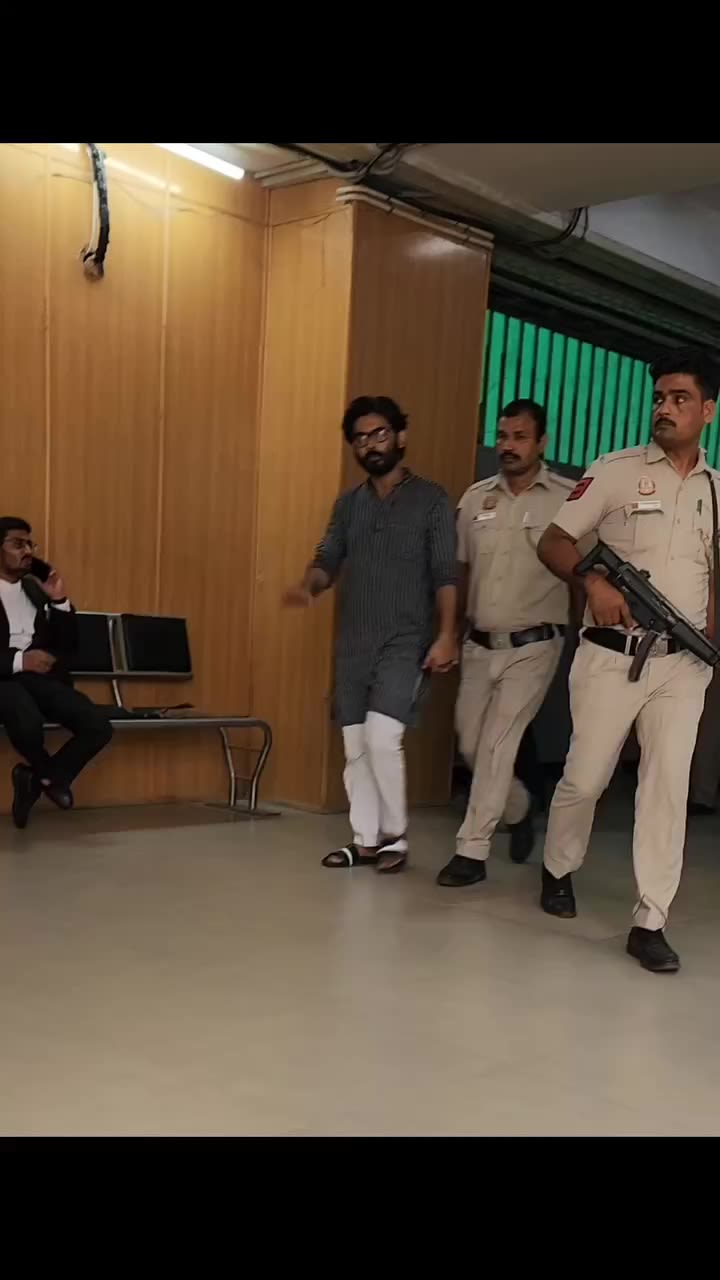
Awaiting Freedom
Muzzammil Imam
"He tells us not to worry about him even though he is still behind bars. We have brought him books and novels, which he reads since he doesn't want to squander his time there. He is highly intelligent and smart," said Muzzammil Imam.
Sitting under bright sunlight in a lovely garden surrounded by roses and greenery, a brother remembers his elder brother, who is confined to a square room with only a bed and a toilet. The only furnishings in his jail cell are a mattress and four grey walls. Wondering how long he would have to stay there before forgetting the sensation of the wind on a stormy day or what a tree looked like.
January 28, 2020, was the day when student activist Sharjeel Imam, an IIT graduate from Mumbai turned-PhD-scholar at Jawaharlal Nehru University (JNU) in New Delhi was put behind bars. He was believed to be the pioneer of the Shaheen Bagh protest, a 100-day-long peaceful sit-in in the capital organised in response to the passage of the Citizenship Amendment Act (CAA) by the Indian Parliament in December 2019. Five different states had reportedly pressed various charges against Sharjeel, including sedition (Sec. 124-A), “promoting enmity between different groups on grounds of religion, race, place of birth, residence, language, etc., and doing acts prejudicial to maintenance of harmony" (Sec. 153A IPC), and several sections of the Unlawful Activities (Prevention) Act (UAPA). He was the first, in a series of many, who were arrested for protesting against CAA-NRC and charged with UAPA. The road to their release is unclear, bravery has changed the lives of the families of anti-CAA demonstrators. Their families are still in the hope that one day, they will be released and will walk free...
Sharjeel learned about grassroots politics from his father, Akbar Imam, who was a Janata Dal (United)'s candidate in the Jehanabad, Bihar constituency in the 2005 assembly election. "When he (Sharjeel) talks about politics, Muslim education, and strategies in politics, you will see him quoting his father's rules and work."
Since 2020, Sharjeel has developed a new routine for him that involves reading a ton of books and attending the weekly "mulakats," or meetings, without fail with his family.
"We talk thrice to him on a call and once a week on a video call for ten to twenty minutes. Five minutes of phone calls and twenty minutes of video calls a week", said Muzzammil.
Sharjeel Imam on video call with his family from prison.
Sharjeel Imam on video call with his family from prison.
Sitting in front of me, smiling, is a brother who is looking after his elderly mother, works, and frequently travels to another state to attend his brother's court proceedings. A man who is so busy and barely has time to unwind adjusted his schedule to speak with me. He chuckles when he speaks, hiding the anger and struggle inside him.
"Since my brother is locked up, I am aware that I must do everything. I can’t deny the reality. I have to be practical. I am the kind of guy who gave my semester exams on November 8th, 2014, and my father passed away on November 6th two days before that. And I have to think like that since I know I have to take care of everything", said Muzzammil.
"My mother knows it will take time. Sharjeel did nothing wrong. She is praying and she is waiting for him to come out of prison. She hasn't met him once in person since he went to jail, quoting his mother, Muzzammil said:
"I cannot go and meet him there and I can’t leave him behind bars. Jab woh ayega tab hi milungi", (I will meet him when he'll come back home)."
In February 2024, a Delhi court denied Sharjeel Imam statutory bail in a sedition case brought against him for allegedly making provocative speeches during the 2019–2020 anti–CAA protests at several locations in Delhi, including the Jamia neighbourhood and Aligarh Muslim University (AMU). Under section 436A of the Code of Criminal Procedure (CrPC), Sharjeel had petitioned the court, arguing that he was eligible for bail because he had already served half of the maximum sentence for the offense that was being brought against him.
Many of the students and activists who spearheaded the anti-CAA demonstrations were imprisoned, and the majority of them have been refused bail.
"The process has also been delayed by the judiciary. The Judicial process is the punishment", Muzzammil.
For the last four years, a lot has been made out of the name Sharjeel Imam. The media has called him out to be a radicalised Muslim youth, the ‘Mastermind’ behind Shaheen Bagh, a student who wants to break India, an Urban Naxal. Other, more liberal forces have called him a political adventurist. Amidst this surge of tags and epithets, the one person we do seem to be losing track of is Sharjeel himself.
Surrounded by all this, Sharjeel is only seen by his younger brother as an elder sibling with whom he used to have silly fights as well as go to school together, steal clothes from each other, listen to each other's views, share inside jokes and stands as pillars of support for one another.
"My brother is way too emotional. There are instances when people are unable to comprehend that. He has a very scholarly mind. He is very far-sighted. He was never hopeless. He is optimistic and gives my mother and I hope. He said to us Poori zindagi ke liye thodi rakh lenge, kabhi toh bahar nikalenge. (They will not keep me inside the jail for my entire life; I will get outside someday)."
Sharjeel and Muzzammil Imam. Credit: Muzzammil Imam
Sharjeel and Muzzammil Imam. Credit: Muzzammil Imam
"Sharjeel has cases registered in different states and I need to travel for legal procedures. Only I, my mother, and my family know how I struggle for my brother."
Further, every other week they speak to each other, Muzzammil mentioned that Sharjeel has told him so much about people who are not recognised by the press or media however, they have been in prison for four years now. Some prisoners don’t have the means to afford lawyers.
"I want to change the narrative in society, we talk about famous people like Sharjeel Imam, and Umar Khalid but what about the other ones like Athar Khan who are just sitting in the dark? My brother and I keep using our voices to raise awareness about them as well."
His innate empathy and scholarly responsibility to look out for others' needs transcend his own circumstances. This particular force is what drew him to Shaheen Bagh to demonstrate against laws that discriminate.
Muzzammil and Sharjeel. Credit: Muzzammil
Muzzammil and Sharjeel. Credit: Muzzammil
Muzzammil further speaks about how the government has always been the one to oppress the voice of the people who want to stand up for truth.
"Sarkare ayengi, jayengi aur aapki awaz ko dabate rahengi." (Governments will come and go, and will keep suppressing your voice).
"This has been happening since the Independence and thereafter. Congress did the same when it was in power. Regardless of whether it was a general or Emergency period in 1975. We are clear as of this now—all of this has occurred and will continue to occur. Every government attempts to silence its critics. However, we will always stand for what is right."
"This is the phase for BJP. This is their time right now. They will see their downfall too", he said.
From IIT to Tihar Jail, Sharjeel's journey is still not over. So does his family. For the country, he has become a poster boy of the movement and Delhi riots of 2020, but for his brother, it's a deeply personal struggle. It's a story of unspoken fears, uncertain futures, and legal battles.
Tanweer Fazal is a Professor at the Department of Sociology, University of Hyderabad. As a political sociologist, he specialises in the sociology of nationalism(s), community formation, and identifications with a specific focus on their implications on the discourse of rights and entitlements. His current interests lie in the study of collective violence and analysis of state practices. He talks about the difficulties of rebuilding lives for Muslims after the Delhi riots in 2020 and under the current political scenario.
"This process is what the torture is going through. Life reconstruction is difficult, especially when society appears to be so divided. Just because someone is released from custody does not mean that their criminal past is over; they still have to appear in court and deal with the stigma of being a criminal. For students who went to jail, getting back into universities would be extremely difficult, and even basic tasks have become extremely challenging. It's not as simple as it sounds. It's an extremely painful procedure. It's a long-run process."
"What is required is some amount of handholding within the community and amongst us. Within society itself, that may be missing as of now, because the whole community seems itself to be in a situation of fear. People also stop lending support, not everyone can come out openly in favour because the police are the law enforcement agencies. All are after them and they fear that they will come to them as well."
He also talks about the Anti-Muslim bigotry, which has been normalised in the democratic process of the country under Modi. A "New Normal."
Fazal discusses laws that the state has implemented, such as the Citizenship Amendment Act (CAA), Love Jihaad, etc. All of this has produced an environment where it appears that those in positions of authority are against particular communities. The normalisation has come from the above.
"With the change of government, there is a change and escalation of violence against one community. We have so many incidents where perpetrators are celebrated, garlanded, and made candidates in elections. There's acceptance of violence by the states as well."
Finding Strength
Nazakat Ali
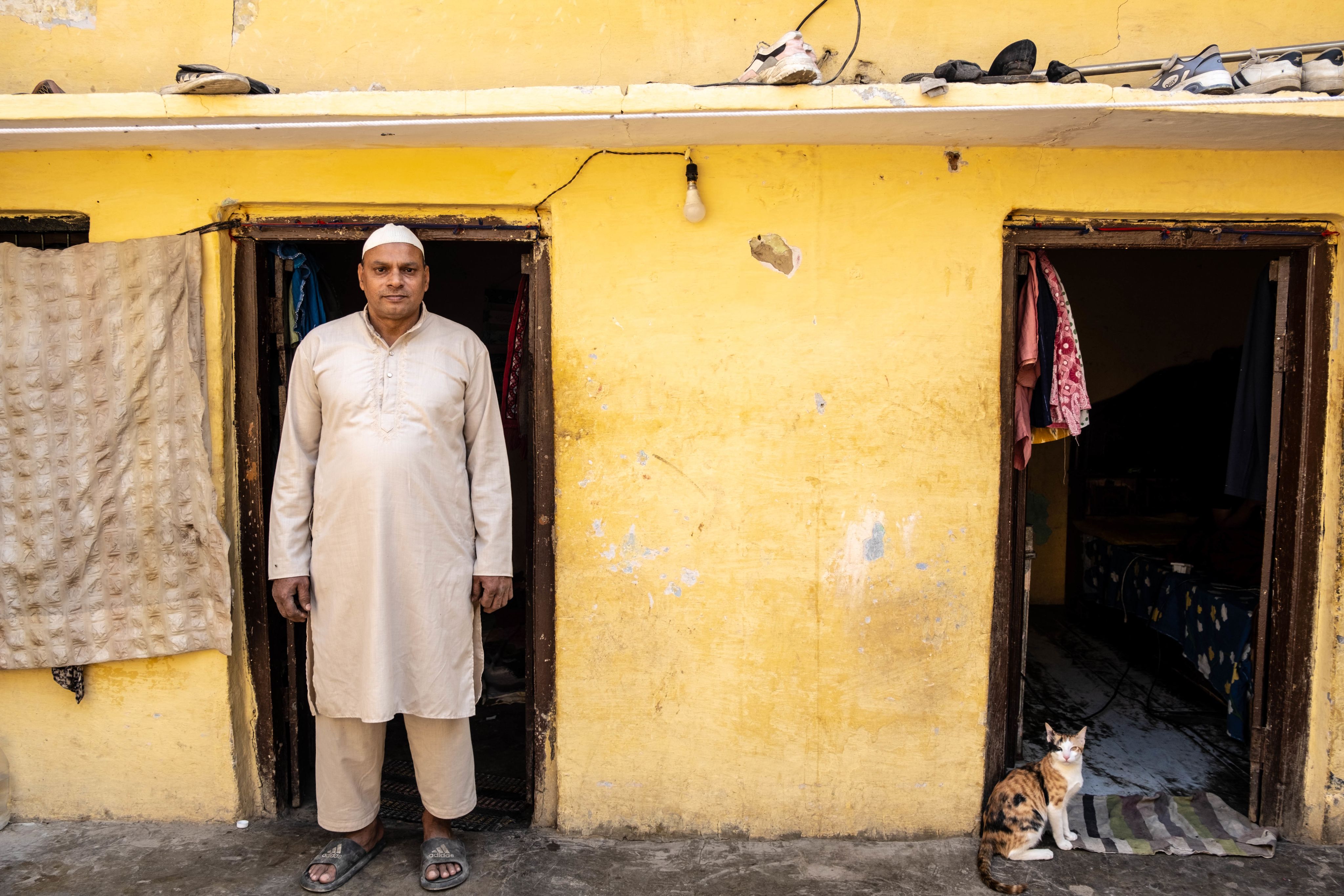
"I had no idea if my kids were alive or not, I had no contact with them", Nazakat Ali.
Nazakat Ali, 46, and his family relocated to a two-room home in the busy Barbarpur neighborhood of northeast Delhi, which is located in the North Shahdara area. The rooms are furnished with floor mattresses and one lightbulb that provides as much light as possible. Ali sold his childhood home, where he was living with his brothers and sister-in-law. He, his wife, and their six kids live together in their home.
February 2020, came as a dreadful nightmare. His world changed and the haunting memory of that experience continues to traumatise him.
Recalling that day, Ali said that when he learned about the riots, he and his Hindu neighbours had a meeting that they would not allow the mob to enter our street.
"None of the rioters were locals. They all were outsiders", Ali said.
Overwhelmed by fear, he hurried home to make sure his family was safe. However, for two hours, he couldn’t find any of his children as they all hid across the neighbourhood.
“My children ran and hid anywhere they could find. Our neighbours took them into their houses and kept them safe until the situation went down. I felt restless as I was unable to do anything. I searched for my children later and they returned home at midnight, scared and terrified."
Ali and his wife.
Ali and his wife.
"I asked my neighbour who lives next to me to take my girls and keep them safe. However, everybody was scared and he said NO. As my home has a low wall which could've not protected us. I was looking for a safer shelter. I remember we spent our night crying and feeling helpless. At that point, I lost all hope."
Ali pauses for a while. His voice began to tremble as he continued to describe, and the sadness was visible on his face. This is a father, and his cry is not like anyone else's. So profound as though a mental chant is taking place. Here before me is a father who would do whatever it took to keep his family safe. He bore full responsibility for everything.
The next day, Ali decided to flee to his in-laws' home in Jaffrabad, Delhi, a Muslim-majority area, to protect his family, particularly his four daughters and wife as the neighbourhood was tense for a couple of days with the violent Hindu mobs targeting Muslims. He got there through four different paths on a motorcycle among the rioting, taking his family members at every turn. They stayed there for 17 days and when they returned, it was obvious that their hearts were still filled with terror.
"The rioters also came to burnt down shops, they destroyed some shops but few were guarded as they were protected by the residents."
"As we came back, the situation was still terrifying but it got better with time. My other neighbours came to check on my family and I. We've always lived peacefully together. My Hindu friends assured me that if I need their help they are always there for me."
Ali discusses how the violence that certain people created during the 2020 Delhi riots has affected everyone's life. "I still feel terrified while thinking about that time. However, there is a certain calm in the atmosphere now."
According to a report published recently on 13 May 2024 by Seema Irshad, it talks about communal riots and their psychological impact. The two most often researched mental health consequences of mass actions, riots, and social unrest are depression and PTSD.
Notably, the frequency of depression and PTSD after mass gatherings appears to be equivalent to those who have been victims of violence, riots, and social unrest in both the general population and among victims of violence. Individual characteristics (such as poor socioeconomic status, female sex, psychological resilience, health status, and social support), the nature of the event itself (such as being exposed to violence, coverage in the media, and level of engagement), and post-event situations (such as loss of personal as well as social resources), Unemployment rates were indicators of risk for psychopathology following collective actions.
In any riot situation, the months right after the violence are crucial to healing. However, for the families affected by the Delhi riots, this period was brutally disrupted by the cruel design of the lockdown and its Islamophobic and anti-poor impulse.
"It's impossible to describe the fear we've gone through during those days."
In the northeast region of Delhi, the area is home to thousands of daily wagers, factory workers, office goers, and small traders. After the Delhi riots in 2020, Ali, who drove an auto rickshaw, was forced to sell it because their family's financial circumstances deteriorated. He currently makes irregular income by working at a tire store close to his house. He is accumulating money for a second auto rickshaw.
"The political parties are using hatred as a tool to stitch together a vote bank for them based on religion. As citizens, we don't care about being Muslim or Hindu, we just want our government to work towards ending poverty, eliminating unemployment, adequate educational opportunities, and development of society."
He also raised concerns about the role of Indian media in this, saying how they often prioritise sensationalised Hindu-Muslim news to generate clicks and viewership. He criticised how this narrow focus perpetuates division among the audience, rather than promoting harmony and understanding among communities.
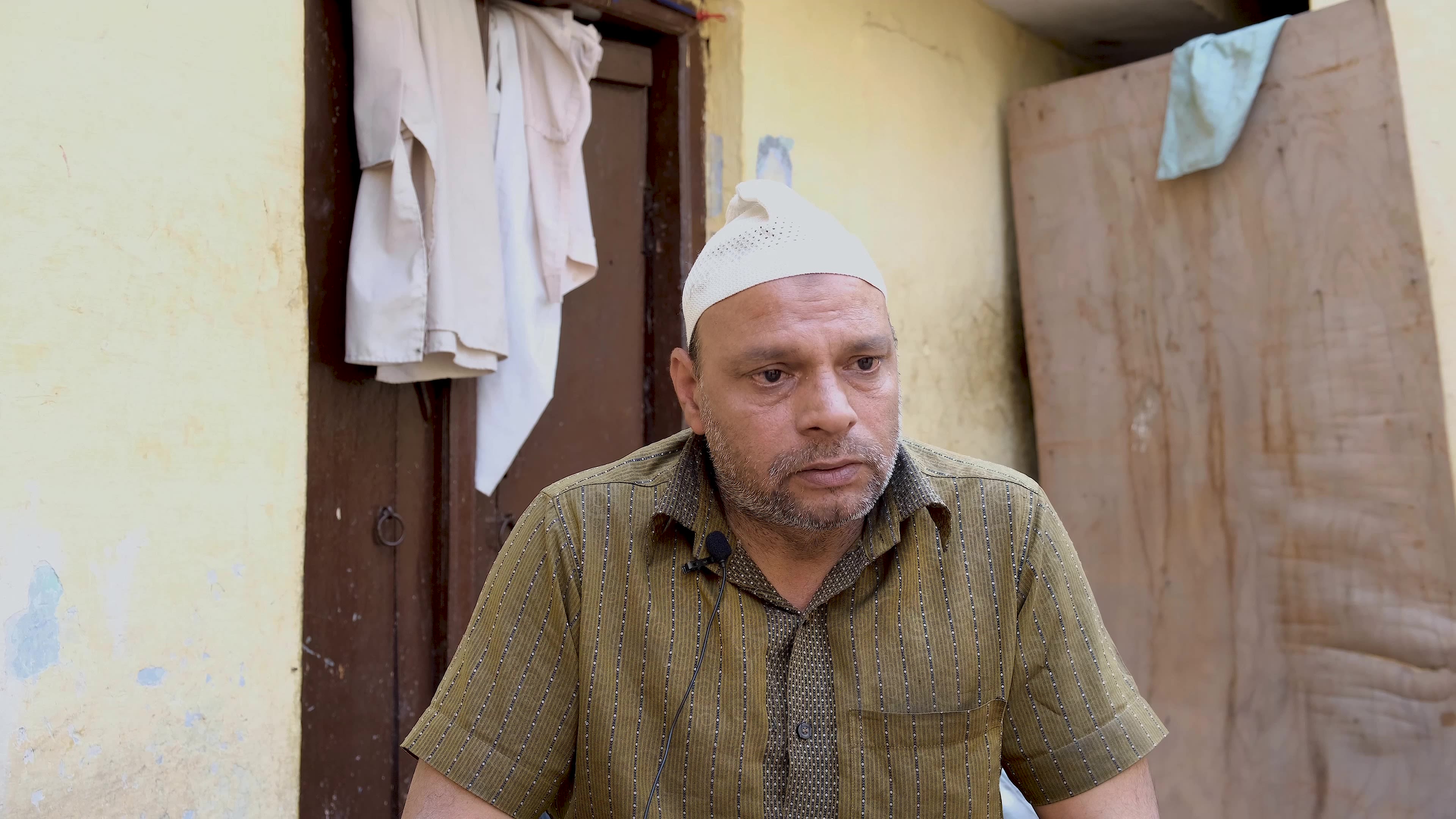
“After everything that happened in my childhood house, I sold it on 26 February 2023. I still have my sweet childhood memories there, but the harrowing ones have subjugated them. Living there with all that trauma weighing on me and neighbour who turned their back when I needed them most became impossible. So, my family and I decided to start fresh, focusing on educating our kids for a brighter future. I steer clear of that street now; it still gives me the shivers. But life goes on, and you learn to deal with the tough stuff.”
The very definition of the word 'secularism' in current times is "the principle of separation of the state from religious institutions". The utopian secularist picture of India is very different from today's reality. The secularist identity that constituted the fundamental basis of the Constitution is eroding. The nation of Hinduism has become more dominant while its secularist foundations have faded. The Narendra Modi government is using religion as a tool of exploitation in India, which is going through a desecularisation process.
"We live in a country now, where the Prime Minister goes and participates in the foundation of the Ram Temple and acts as a priest in the inauguration with a huge state support. The new Parliament building, when was inaugurated, they had whole lots of saints and priests coming and blessing the occasion. So, even if the word secularism remains within the preamble, we see that there is no practice of it. There is a willful kind of you can say, a denial of it", Tanweer Fazal.
As the overwhelming favourite to win a third consecutive term in office later this year, Modi will come into the list of India's longest-serving Prime Ministers. That is more than enough time to finish shaping the nation and its institutions to his liking with practically unrestricted power.
Muslims in modern-day India have faced beatings and even arrests for discreetly performing namaz in any public setting. Muslim fruit and vegetable vendors have been driven out of colonies; shops that sold meat and fish have been closed for days due to the Hindu holiday, Muslim girls are restricted to wearing hijabs, communal riots have increased and the language of bigotry has been normalised.
It's in the hands of Indian voters to decide what kind of India they want.
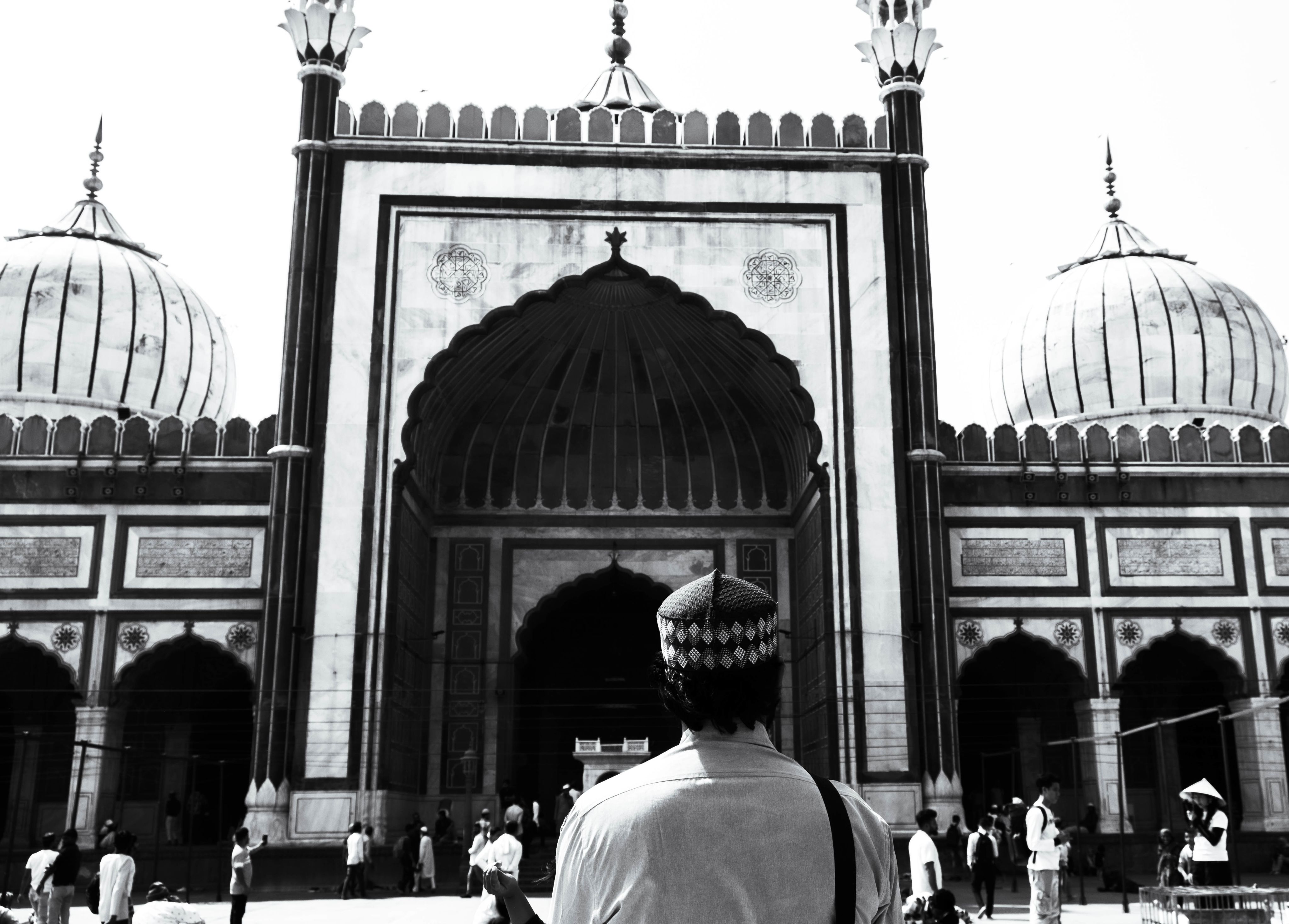

"Indian Democracy can only be save if BJP doesn't get more than 200 seats, however, if they get more than 300 seats, they will easily try to change the constitution and turn this country into fascist, this worries me a lot", Prem Shankar Jha.
"If the same regime returns, same politics continues, I see things become more difficult for minorities group in India. There's a whole push towards the singularisation of culture. So, the diversity is supposed to be erased. Diversity is seen as a threat to the integrity of a nation which is a completely false idea. Diversity contributes to the integrity of our nation", Tanweer Fazal.
About this story:
The Multimedia feature vividly portrays the polarization in India during Prime Minister Modi's tenure, focusing on the challenges faced by Muslims.
The images range from intimate portraits to street scenes, the images trying to capture their mounting anxiety for the future and the scars of past violence that remain unhealed. Video interviews provide a deeper, personal perspective—individuals speak about their personal stories revealing their hopes, dreams, and sentiments. The combination of photos and interviews brings the narrative to life, offering a raw, emotional insight into the everyday lives of Muslims in India.
Location: Delhi, India.
